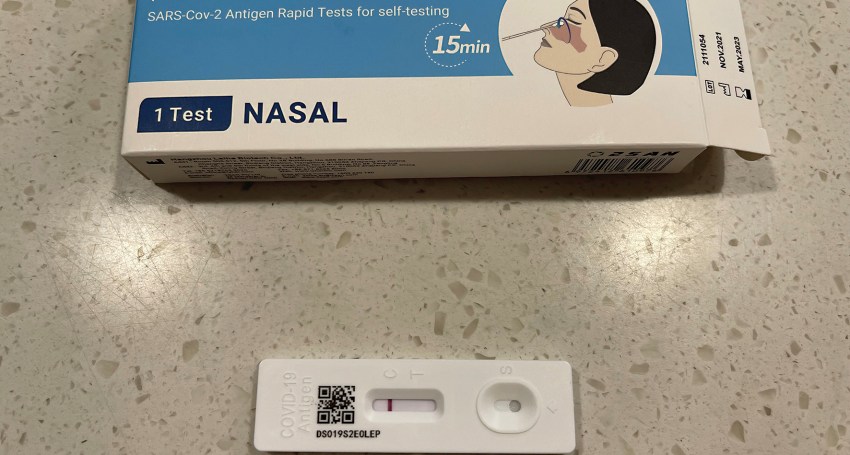A little kindness goes a long way
Opinion
Well, 2022 is not starting off quite like we thought it would. High vaccination rates, the reopening of borders (WA excluded of course) and a gradual return to ‘normal’ were cause for cautious optimism late last year, but Omicron changed all that.

Having personally experienced the latest mutation of the coronavirus (I’m assuming it wasn’t Delta), I can say it’s not that pleasant, but nor is catching a bad cold, the flu or gastro.
Fortunately in my case – and many others – the worst symptoms lasted only a few days and while a niggling cough and some fatigue lingered, once I was ‘released’ from quarantine I was able to enjoy the remainder of my holidays. I even had a slight air of arrogance knowing that I was unlikely to be infected or infectious for at least a few months.
Advertisement
But it made me realise that when you have COVID there aren’t the same options available to you as when you have a bad cold, such as going to your local GP to try to persuade them to give you some antibiotics, or asking the local pharmacy for their best concoction for sore throats and coughs. There is also a heightened sense of anxiety with COVID, such as whether that tightness in your chest or those night sweats are something you need to act on, plus you’re stuck at home with more time to dwell on how rotten you feel.
For those concerned about their COVID symptoms, it’s off to hospital. And that sets in train a whole lot of complications and requirements such as Personal Protective Equipment (PPE) for health workers, isolating from other patients and, at worst, treatment in intensive care units and ventilators. So it doesn’t take long for the toll on the hospital system to start creeping up.
As I tried unsuccessfully to get in one of the long queues for PCR tests over the COVID-busy Christmas to New Year period I couldn’t help but wonder if the health workers and other resources at these testing sites would be better utilised in hospitals. What if we just isolated when we got symptoms, and felt crook, without getting tested?
I think most of us are more than happy to isolate when we have COVID, but could someone please tell me why it’s 10 days here and seven in most other states? As for close contacts, it would seem that if they test too early they may get a negative result and if they wait for symptoms, they’ll test positive.
I was lucky enough to be in quarantine with my daughter who had symptoms and tested positive first. My husband and I both took a Rapid Antigen Test and were negative, but a few days later I got symptoms and – guess what, I tested positive. My husband had no symptoms and continued to test negative.
After the initial disappointment of missing out on New Year’s Eve celebrations, and a friend’s wedding in my daughter’s case, we were extremely well looked after by family and friends who dropped off meals, games, magazines and, most importantly, morning coffees. A big shout out to my 86-year-old Aunty Jill who rode her bicycle laden with multiple (and heavy) goodies in the basket to our place on several occasions.
Advertisement
I know of several groups of young people who isolated together in the one house and I’m sure their 10 days passed extremely quickly. The young are extremely good at finding ways to amuse themselves I’ve discovered.
But I am well aware that there are others who have had to isolate on their own and who don’t necessarily have the same support networks around them. For them, the phone calls and text messages from the SA Health wellbeing team would be most welcome.
The mental health impact of being isolated or unable to see loved ones, combined with anxiety about the virus itself, is a very real issue for some people, just as it was for many Victorians who had to endure the toughest restrictions in the world or those required to do 14 days quarantine in a medi-hotel. A friend who lives alone in Melbourne confided recently that he had really struggled with the sixth lockdown and ended up seeing a psychologist.
While my brief ‘iso’ experience pales into insignificance, I will never again take for granted seeing someone at the front gate with a friendly smile (and a coffee) or receiving a phone call from a friend rather than a quick text message.
Living with COVID might be different to what we thought it would be, but it’s a lot more palatable when we show a little kindness to one another.








Comments
Show comments Hide comments